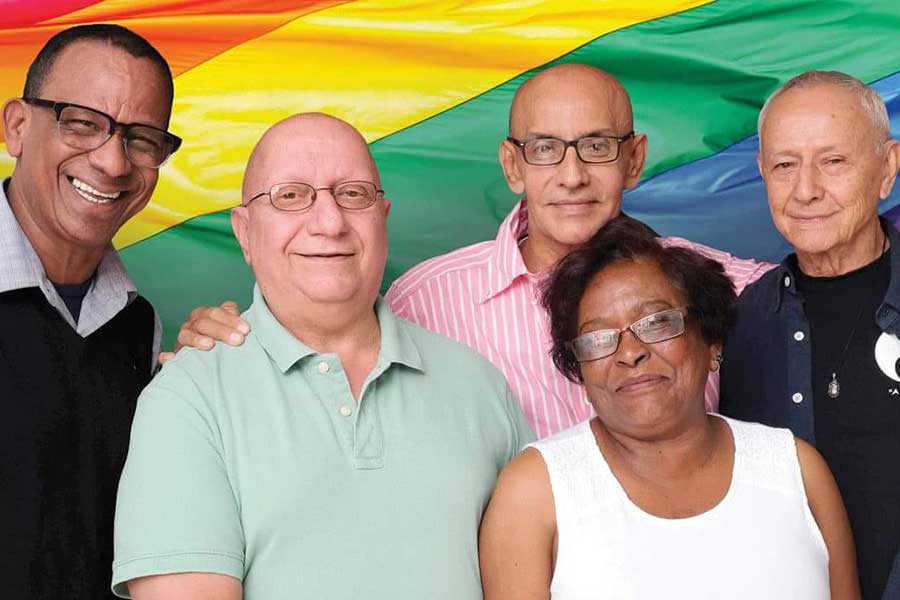A portrait of the future for LGBTQ elder adults indicates that by 2030 there will be seven million LGBTQ senior citizens living in the United States, according to the results of a Feb. 12 Family Equality Council survey.
The survey also predicts that it is more than likely true that many elder LGBTQ folk will resist or avoid senior living/care homes facilities due to discrimination or concerns of abuse. That’s based on the statistic that 43 percent of LGBTQ elders at present have seen or experienced refusal of admittance due to sexual orientation, separation from a same-sex spouse or homophobic residents.
The United States offers several LGBTQ senior housing options, the pricey and plush Fountaingrove in California wine country, San Francisco’s Openhouse and Seashore Point in Provincetown, MA, are but three homes for gay/trans elders. Yet, with an entrance fee alone of $400,000, those types of facilities are not likely in most people’s budgets. Nationally, and in the state of Pennsylvania, there is a huge lack of affordable senior housing, and fewer answers.
“This is going to become an even bigger issue as the Baby Boomer generation continues to grow older and needs to rely more on senior housing,” said David Griffith, Director of Programs & Outreach for LGBT Elder Initiative (lgbtelderinitiative.org), an organization that fights for the rights and opportunities of LGBT elders in the Delaware Valley and beyond. “When the senior housing that does exist is inhospitable to LGBTQ older adults, members of our communities have to either deal with this negative treatment in their living environments or end up experiencing housing security in their elder years.”
Griffith stressed the importance of states such as Pennsylvania to draw up, then pass non-discrimination laws that protect people on the basis of sexual orientation and gender identity, and to vote vigorously for legislators who’ll wage that battle.
“We often think about non-discrimination laws protecting you from being fired from your job,” Griffith said. “But they are also necessary to ensure that you are not turned away from senior housing or long-term care facilities based on your identity. There also needs to be more training for people who provide services to older adults to become better equipped to work with LGBTQ populations.”
Griffith also said there is a lot of misinformation and bias that exists among service providers. Cultural competence trainings, such as those provided by SAGE (the country’s largest, oldest organization dedicated to improving the lives of LGBTQ elders), are a first step toward developing agencies that can effectively meet the needs of LGBTQ older adults.
The problems of LGBTQ elder care are not singular to the United States.
Things aren’t much better in Europe, with Berlin being a minor hub of LGBTQ senior housing (three locations) and other homes now building in Amsterdam, Barcelona, Belgium Madrid and Manchester.
Matthieu Jost, founder and CEO of misterb&b — the largest travel and social networking website, across 135 countries, for LGBTQ lodging and short-term rentals — knows how pricey housing can be in his native France, let alone the globe. “Our aim is to have LGBTQ travelers go safe, and to be able to connect all over the world,” said Jost from his Paris offices.
With that experience, and to serve the ways and means of LGBTQ elders, he, is helping to develop the Rainbold Society, Paris’ first senior-citizen house. “We have been incubating this for some time, and the aim of the Rainbold Society project is to have a home for diversity, for LGBTQ seniors at the end of their lives, for them to continue to be vital to the community, and to never be lonely.”
Doing a project dedicated to elder housing has always been at the top of Jost’s mind, personally and professionally, for at the end of one’s life — to join in community and remain part of an active mindset – is necessary for one’s survival in every fashion. “You must maintain value — to, and for yourself, and the world around you,” he said. Part of that value, for many LGBTQ elders, can be had through Jost’s Rainbold Society and their role as guides to their home cities, and mentorship to younger LGBTQ travelers utilizing the misterb&b housing system. “They are often alone and wish to open their homes to fellow travelers,” said Jost, referring to both literal and figurative senses of the phrase. “Anything to aid the elderly in staying connected — especially those in the countryside — to be able to socialize, is vital.”
